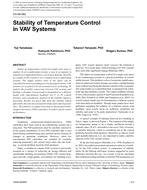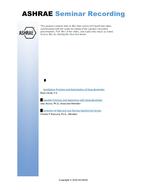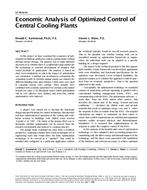In recent decades, the U.S. experienced increases in prolonged periods of excessively high and low temperatures. During these extreme conditions, home temperatures may extend beyond the ASHRAE Standard 55 temperature range of 67℉ – 82℉ (19.4 ℃-27.8 ℃) for extended periods of time. Power outages that are often correlated with these extreme temperatures exacerbate the problem.
To help populations prepare and respond to such hazardous events, this research aims to quantitatively inform populations of their vulnerability. First-order dynamic thermal models of 3,323 homes in the Illinois, Indiana, Michigan, and Wisconsin are identified using only indoor and outdoor temperatures and heating, ventilation, and air conditioning (HVAC) equipment duty cycle records from the ecobee Donate Your Data (DyD) dataset. Using the models, the building envelope thermal resistance (R-Value) and heating capacity of equipment in each home can be estimated. Additionally, a simulation of the 2019 polar vortex in Chicago is conducted to estimate indoor temperature if a power outage occurred.
This proposed building-stock model provides a means to estimate geospatial thermal vulnerability of populations during extreme weather-related events. Such a tool could provide vital information such as estimated indoor temperature, time to unsafe indoor temperatures during power outages, and percentage of homes at risk. This information is important for governing bodies to establish emergency management plans, make real-time decisions, and encourage stricter building codes to provide building stock resilience.
Citation: 2020 Virtual Conference Papers
Product Details
- Published:
- 2020
- Number of Pages:
- 8
- Units of Measure:
- Dual
- File Size:
- 1 file , 1.3 MB
- Product Code(s):
- D-VC-20-C005


